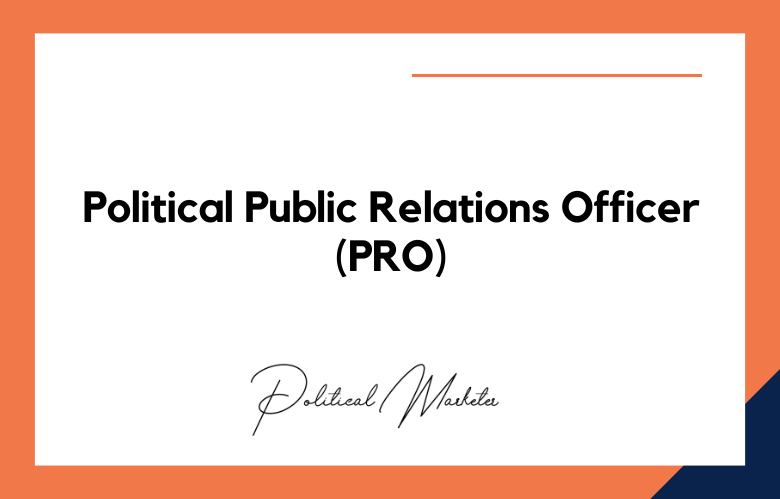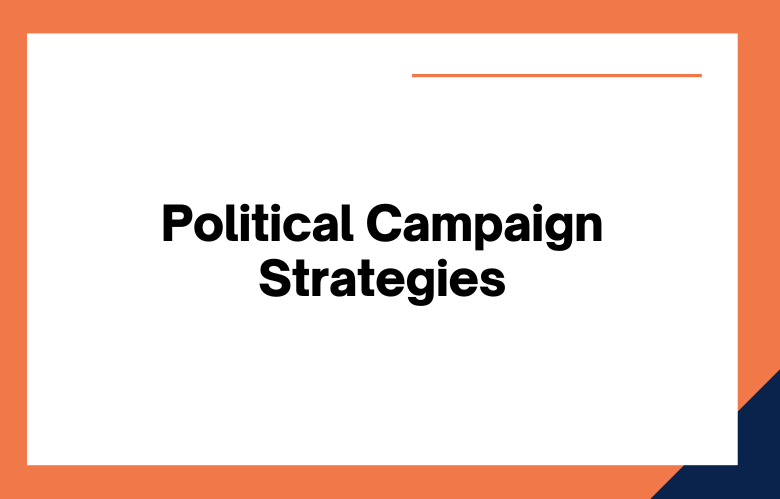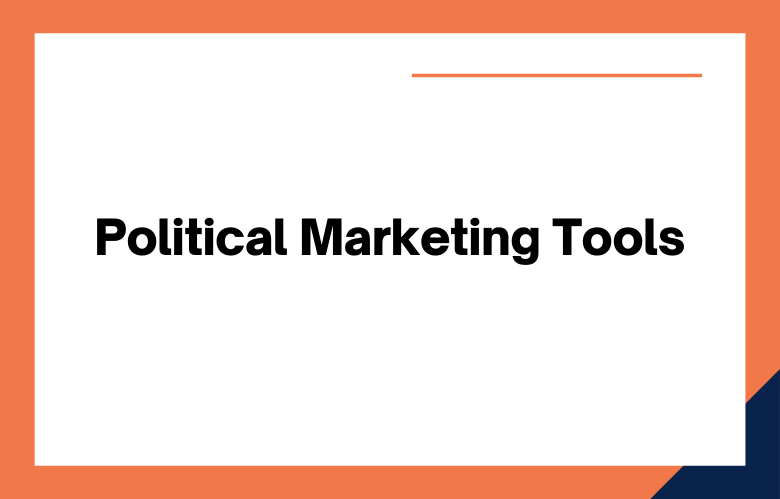Politics is one of the most critical aspects of society. For political campaigns and leaders, effective communication is essential. Communication helps to bring people together and relay messages.
Aside from speech, one of the mediums of communication is using visual content to communicate and share messages.
However, there are cases where individuals or organizations may infringe on others’ copyrights when creating and sharing such visual content. It will provide essential copyright tips for political campaigns and leaders.
What is Copyright, and How Does it Apply to Political Campaigns and Leaders?
Copyright is a form of legal protection given to the creators of original artistic works, music, written material, and other forms of creative expression.
This protection allows the creators to control the use and distribution of their work, which includes reproducing, performing, and displaying it to the public.
Copyright law can also apply to political campaigns and leaders if they use copyrighted material without permission from the creators. This can result in legal consequences, such as lawsuits, fines, and damages.
What You Need to Know About Copyright for Political Campaigns and Political Leaders?
With the advent of technology, it has become easier for political campaigns and leaders to share their messages through various mediums.
From social media platforms to television advertisements, there are various ways in which politicians communicate with their target audience. However, political campaigns and leaders must understand Copyright and its implications in this digital age.
Copyright law can significantly impact political campaigns and leaders, their messaging, and the use of artistic work, music, and other media. We will explore what political campaigns and leaders need to know about Copyright.
How Political Campaigns and Leaders Can Obtain Permission to Use Copyrighted Material.
Political campaigns and leaders must obtain permission to use copyrighted material to avoid legal consequences.
This can be done by contacting the creators and getting written consent. Sometimes, the creators may ask for a license fee or a royalty payment, which must be negotiated and agreed upon.
Political campaigns must ensure they have the correct permissions for any material used during their events, including speeches, photographs, and videos.
Understanding Fair Use and Political Campaigns.
Fair use is a provision in copyright law that allows the use of copyrighted material without permission from the creators. This provision applies to specific circumstances, including criticism, commentary, news reporting, teaching, scholarship, and research.
Political campaigns and leaders can also use copyrighted material under the fair use doctrine but must ensure their use falls under the provision.
For instance, if a political campaign uses copyrighted music in its advertisement, it can claim fair use if it is used for criticism or commentary.
The Importance of Copyright for Political Campaigns and Leaders.
Understanding copyright law is essential for political campaigns and leaders. Failing to comply with Copyright can lead to legal and financial consequences that could negatively impact the campaign.
Protecting copyrighted material is also essential for artists, musicians, and creatives. By respecting Copyright, political campaigns can support the creative industry and demonstrate a positive image.
Copyright Tips for Political Campaigns and Political Leaders.
Get permission:
It is essential to obtain permission or a license from the copyright holder before using any of their work.
If you plan to use an image, video, or music in your campaign, you must obtain the proper license or permission from its creator or owner. You can get permission by contacting the copyright owner or using different licensing platforms to obtain licenses.
Use Public Domain Works:
Opting for works in the public domain or those licensed for general distribution is best when using visual content.
Copyright laws do not restrict works in the public domain; they can be used without permission from their original creator. You can check the public domain for images, music, and videos on Pixabay or Wikimedia Commons platforms.
Create Your Content:
You can create original content instead of relying solely on images, videos, or music from other sources. Creating original visual content can help you avoid copyright infringement while giving your campaign a unique touch.
Suppose you are unable to create your visual content. In that case, you can hire a professional photographer, videographer, or graphic designer to create content for you.
Limit Use of Other’s Works:
While it may be tempting to use images or videos from other sources, limiting the use of works that belong to others is essential.
Using works that belong to others in your campaign could result in copyright infringement. Instead, use such works sparingly and, where possible, cross-check with the copyright owner before using.
Fair Use:
Fair use is a legal principle that allows you to use another person’s copyrighted material without permission for specific purposes, such as commentary, criticism, or news reporting.
However, the general rule for fair use is that only a tiny portion of the original work can be used, and the use does not harm the potential market value of the original work. In short, ensure that your use of another person’s work falls under the fair use clause.
Types of Copyright Political Campaigns and Political Leaders.
Copyright Laws and Political Campaigns.
Copyright laws protect individuals’ or organizations’ creative expressions, such as writing, music, images, and creative work. Political campaigns and materials, such as billboards, slogans, and logos, fall under these intellectual property rights laws.
By securing intellectual property rights, campaigns can prevent others from seeking unauthorized use of their materials. For example, stealing an opposing candidate’s slogan or logo to dupe voters into supporting them is illegal and can lead to legal action.
Copyright Laws and Political Leaders.
Politicians and public figures often have their speeches, interviews, and published works published in print or digital media.
These works are copyrighted, and the politicians own them. Having copyright protections allows politicians to reap the benefits from their works being published and reproduced, making it illegal and punishable by law for unauthorized individuals to publish unapproved copies of their speeches or works.
Copyright Violations in Political Campaigns.
Copyright violations in political campaigns are pretty standard. Some examples of potential violations include the unauthorized use of copyrighted images in ads, using music without permission during rallies, and distributing copyrighted materials without fair use rights.
Copyright laws are essential to prevent unfair competition among political parties or candidates and ensure that all parties are on equal footing regarding campaign materials.
Conclusion:
Copyright protection laws are in place to guard the rights of creators and owners of content. As political campaigns and leaders, you should always consider obtaining permission or licenses before using visual content.
It is also crucial to limit the use of works that belong to others, use public domain works, create original content where possible, and ensure that your use of another person’s work falls under the fair use clause.
Following these tips can avoid copyright infringement issues and effectively communicate your messages.
Call: +91 9848321284
Email: [email protected]
Copyright Tips for Political Campaigns and Political Leaders: FAQs
What Is Copyright, And How Does It Apply To Political Campaigns?
Copyright is a legal protection for original creative works. In campaigns, it applies to logos, slogans, videos, music, and written content used for outreach.
Can Political Campaigns Use Copyrighted Music In Their Ads Or Rallies?
No, not without permission or a proper license. The unauthorized use of music can lead to legal action by rights holders.
How Can Campaigns Legally Use Images And Videos In Digital Content?
Campaigns should use original content, public domain material, or media licensed under Creative Commons with attribution where required.
Do Political Campaigns Subject Use Memes to Copyright?
Yes, unless the meme is based on original content created by the campaign, is clearly in the public domain, or is under fair use.
What Is ‘Fair Use’ And Can Campaigns Rely On It?
Fair use allows limited use of copyrighted material for commentary, criticism, or parody, but it’s a legal gray area and risky in political advertising.
Do Political Campaign Slogans Need To Be Copyrighted Or Trademarked?
Slogans are typically protected under trademark law, not copyright. Registering a slogan can prevent its misuse by others.
Is It Legal To Use Content From News Clips In Campaign Videos?
Not without permission, unless the clip is very short and used under fair use, which is still open to legal challenge.
What Are The Risks Of Using Copyrighted Content Without Permission?
Risks include takedown notices, fines, lawsuits, and negative publicity, especially when large rights holders are involved.
Can Political Leaders Share Copyrighted Content On Social Media?
Only if they have the right to share it or are sharing under platform-specific licenses or embedding from authorized sources.
Should Political Campaigns Use Stock Content?
Yes, using licensed stock images, audio, and video is a safe way to stay compliant and professional.
Can Volunteers Create And Share Campaign Content Using Copyrighted Materials?
Volunteers must also follow copyright rules; the campaign is liable for any content officially distributed on its behalf.
What Is Creative Commons And How Can Campaigns Use It Safely?
Creative Commons licenses allow content to be reused under specific conditions. Campaigns should check the license type before use.
How Can Campaigns Avoid Copyright Infringement In Social Media Ads?
Using original or licensed media, including music, fonts, images, and ensuring permission for third-party content.
Can Political Opponents Sue Over Content Misuse Or Copyright Violations?
Yes. Political campaigns are not exempt from civil suits regarding intellectual property misuse.
Are There Automated Tools To Check For Copyright Issues In Content?
Yes, tools like YouTube Content ID, reverse image search, and plagiarism scanners help detect potential copyright problems.
How Should Campaigns Respond To Copyright Takedown Notices?
They should remove the infringing content immediately and consult legal counsel to file a counter-notice.
Can Political Campaign Websites Embed Copyrighted YouTube Videos?
Yes, embedding is generally allowed under YouTube’s terms, but the campaign should not download or republish them directly.
Is It Necessary To Credit Sources In Political Materials?
Yes, especially for Creative Commons content or quotations, to respect creators’ rights and avoid plagiarism claims.
How Should Political Leaders Handle Copyright On Personal Blogs Or Newsletters?
They should use only original or appropriately licensed content and give clear attribution where required.
What Copyright Tips Should Political Campaigns Follow During Elections?
Use only original or licensed media, educate staff and volunteers on IP laws, and keep a content usage log for accountability.









